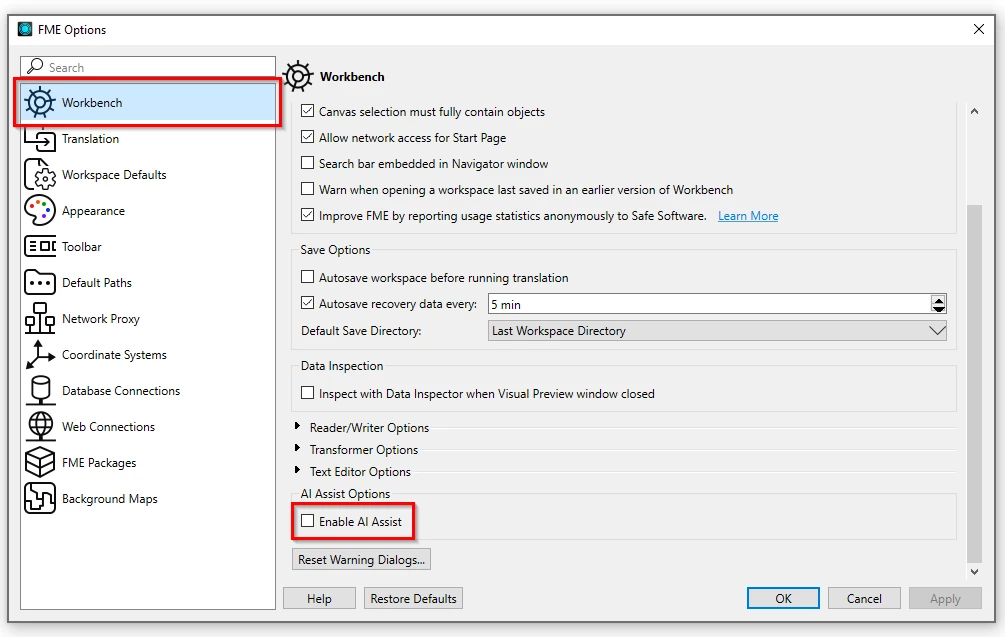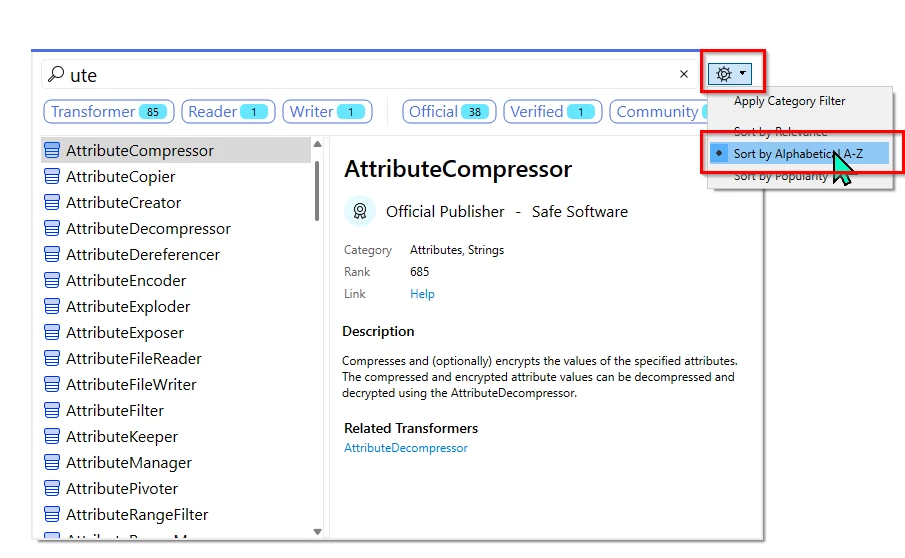Hello,
FME workbench has a strong tendency to take longer and longer to perform editing tasks (NOT translation) the bigger the workspace gets.
Disclaimer: My workspace contains over 2100 transformers and I am aware that editing transformer links upstream will cause FME to recalculate downstream.
However, my frustration is due to the fact that even minor modifications to very small independent workflows in the workspace seem to trigger the same recalculation as the workbench becomes unresponsive for 5-15 seconds every time I do something. This even happens when i move a transformer without altering any workspace logic. It even happens when I move an unconnected transformer! Extremely debilitating to productivity.
Is this a known issue / any optimization planned?
Using FME Workbench on Windows x64 2016.1. Confirmed on multiple PCs.


